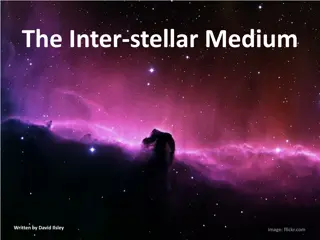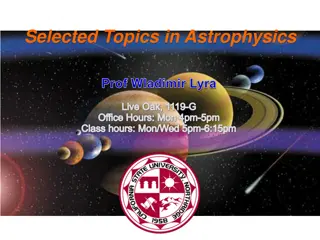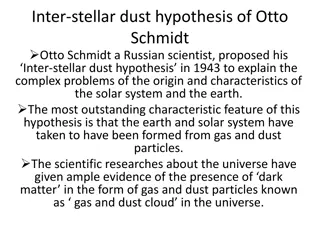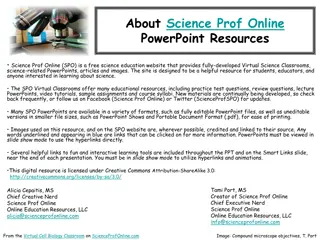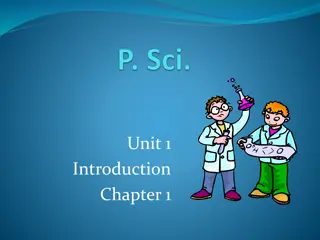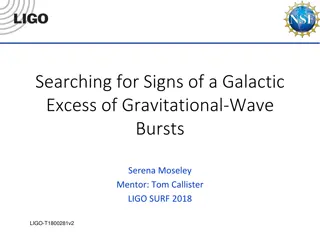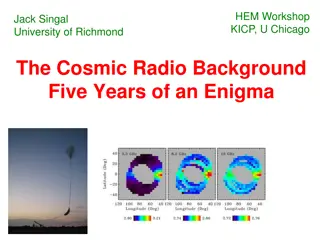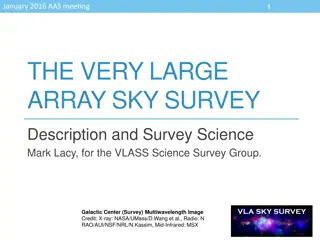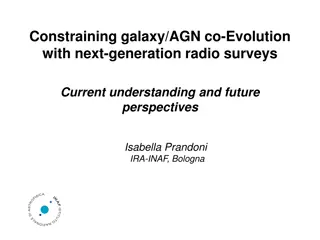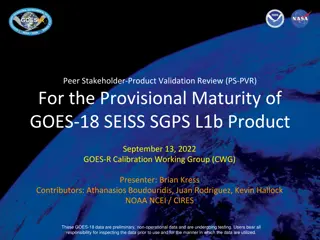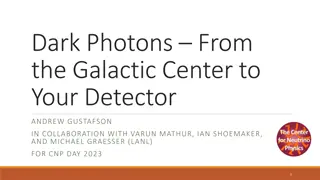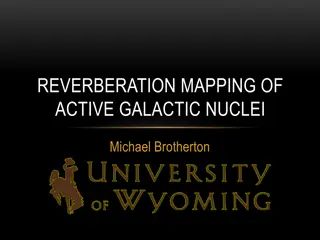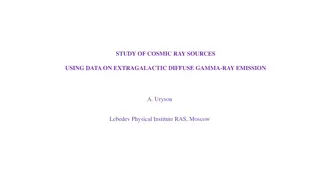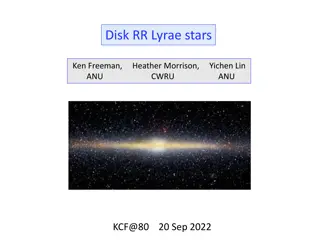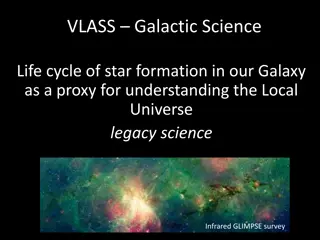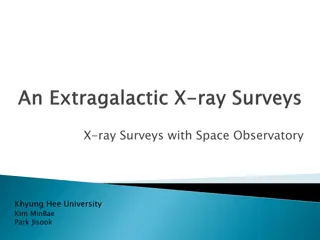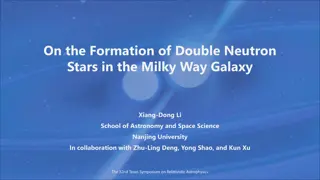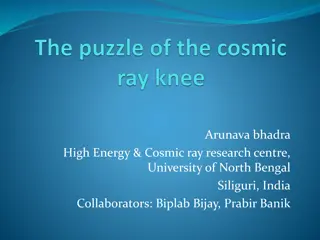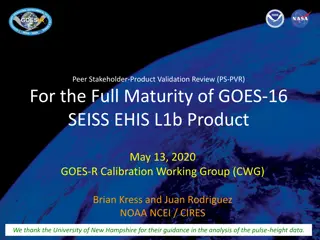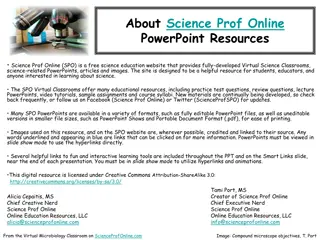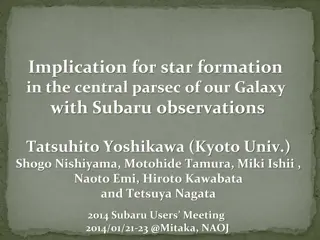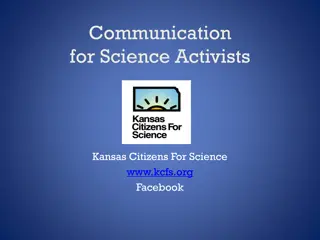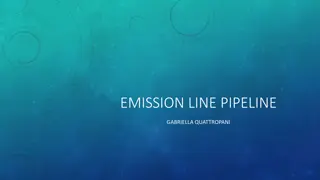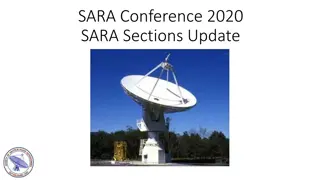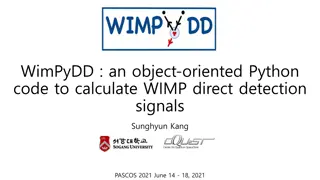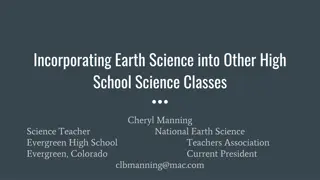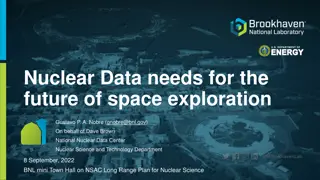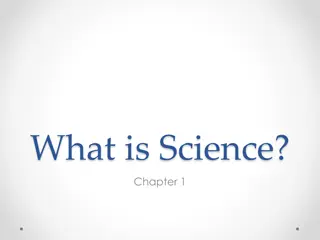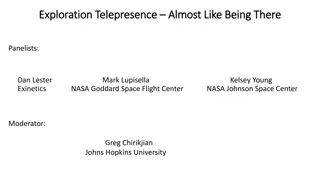Government Management System Based on Science and Innovation in Cuba
The Cuban Revolution under Fidel Castro emphasized the role of knowledge, science, and technology in national development. With the Constitution of the Republic in 2019, science, technology, and innovation (STI) are recognized as crucial for prosperity, sovereignty, and independence. Amid the COVID-
2 views • 18 slides
Understanding AGN Jet Production Efficiency: Insights from Spin and Magnetic Flux
A fundamental question in astrophysics is how efficiently active galactic nuclei (AGN) produce jets. Black hole spin and magnetic flux play crucial roles in determining the jet production efficiency. High-spin values and large magnetic flux threading are essential for generating high-efficiency jets
2 views • 22 slides
B.Sc (Arts) Courses and Colleges List for Science Students
If you\u2019re a 12th-grade student exploring undergraduate options in the B.sc science stream, consider the following list of recommended courses and colleges\nThe list of courses and colleges for the Science stream:\n1. B.sc (CS)\nThe BSc Computer Science, or BSc CS, is a 3-year undergraduate prog
9 views • 5 slides
Evolution of the Universe: From Big Bang to Galactic Recycling
380,000 years after the Big Bang, the Universe transitioned from a plasma to a gas, leading to the formation of atoms. Gravity caused gas clumps to form galaxies, stars, and other celestial bodies. The life cycles of stars play a crucial role in recycling material back into the inter-stellar medium,
1 views • 38 slides
Exploring Fascinating Topics in Astrophysics
Delve into intriguing subjects like Galactic Rotation Curves, Mass to Luminosity Ratio, Low Surface Brightness Galaxies, Dark Matter Haloes, and the Bullet Cluster. Discover how observations and Big Bang nucleosynthesis help us understand dark matter in the universe.
1 views • 10 slides
Interdisciplinary Approach in Political Science and Its Relation with History
The need for an interdisciplinary approach in political science emerged in the 20th century to study political issues from various social science perspectives. This approach emphasizes the interrelation between political science and other disciplines like history. History provides the foundation for
0 views • 23 slides
Understanding Open Science Practices in Horizon Europe
Open Science in Horizon Europe emphasizes open, collaborative research processes to enhance excellence and impact. Important documents and resources provide guidance on meeting open science obligations, while proposals are evaluated based on open science practices. Evaluating proposals in Horizon Eu
1 views • 12 slides
The Interstellar Dust Hypothesis of Otto Schmidt Explained
Russian scientist Otto Schmidt proposed the Interstellar Dust Hypothesis in 1943 to explain the origin of the solar system and Earth. According to this hypothesis, gas and dust particles from the universe formed our solar system. The dark matter in the form of gas and dust clouds played a crucial ro
3 views • 5 slides
Computer Science Department Information and Courses Offered
The Computer Science Department provides information on courses offered for GCSE or BTEC qualifications, specifically focusing on the AQA GCSE in Computer Science. The course equips students with valuable thinking and programming skills essential in the modern workplace, covering key concepts and pr
3 views • 7 slides
Free Science Education Resources on Science Prof Online (SPO)
Science Prof Online (SPO) is a valuable free science education website offering fully-developed Virtual Science Classrooms, science-related PowerPoints, articles, and images. It serves as a comprehensive resource for students, educators, and anyone interested in science. Explore practice test questi
0 views • 17 slides
Free Science Education Resources at Science Prof Online (SPO)
Science Prof Online (SPO) is a comprehensive science education website offering Virtual Science Classrooms, science-related PowerPoints, articles, and images for students, educators, and anyone interested in science. The site provides various educational resources, including practice test questions,
0 views • 16 slides
Understanding Science: Introduction to the World of Knowledge
Discover the essence of science as a system of knowledge and methods for exploration. Learn about the scientific method, the relationship between science and technology, and key branches of science like chemistry and physics. Explore how science is conducted through observations and inferences, and
0 views • 54 slides
Unveiling Galactic Excess in Gravitational-Wave Bursts
Investigate the presence of a galactic source emitting gravitational waves within the LIGO frequency range and develop techniques to detect and identify these signals. Employ simulations to differentiate between isotropic and galactic event distributions, aiming to enhance our understanding of the o
0 views • 30 slides
The Cosmic Radio Background: Unraveling an Enigma
Delve into the mysteries of the cosmic radio background through discussions on isotropic radio skies, Galactic monopoles, extragalactic components, and limitations on magnetic fields. Explore the complexities of synchrotron emissions and their implications in understanding the universe.
3 views • 21 slides
VLASS Sky Survey and Galactic Science Highlights
The January 2016 AAS meeting discussed the VLASS Sky Survey, highlighting survey parameters, science drivers, and the potential for new discoveries in galactic science. Key topics included multiwavelength imaging, Faraday tomography, AGN and galaxy evolution studies, and the search for exotic system
2 views • 9 slides
Co-Evolution of Galaxies and AGN with Next-Gen Radio Surveys: Insights and Prospects
Understanding the co-evolution of galaxies and active galactic nuclei (AGN) through next-generation radio surveys is crucial for advancing astrophysical knowledge. These surveys offer a comprehensive view of star formation, AGN activity, and AGN feedback mechanisms. The quest for multi-band informat
0 views • 18 slides
Go Science Crazy: Explore the Wonders of Science with Our Science Kits for Sale
Discover the excitement of science with Go Science Crazy's premium Science Kits for Sale. Perfect for classrooms, homeschoolers, and budding scientists, our kits are packed with everything you need to explore chemistry, biology, physics, and more. Ea
0 views • 3 slides
GOES-18 SEISS Solar Galactic Proton Sensor Product Validation Review
GOES-18 SEISS SGPS L1b product is undergoing provisional maturity testing by the GOES-R Calibration Working Group. The review includes evaluation of product quality, supporting instruments, health tests, and path to full validation. Users are responsible for inspecting and utilizing the preliminary
0 views • 39 slides
Unveiling Dark Matter Mysteries Through Dark Photons
Delve into the exploration of dark matter through the lens of dark photons in the galactic center and detectors. Uncover the enigmatic nature of dark matter, its interactions, existing constraints, and our model with fermionic dark matter and a dark photon mediator. Discover strategies to evade cons
0 views • 18 slides
Understanding Active Galactic Nuclei and Black Hole Mass Measurements
Exploring active galactic nuclei (AGN) through reverberation mapping techniques to measure black hole masses, observing AGN schematics, ultraviolet-optical AGN spectra, and methods for measuring masses in space. Delve into the current understanding of AGN fields, the future prospects, and ongoing re
0 views • 30 slides
Exploring Cosmic Ray Sources Using Gamma-Ray Emission Data
This study focuses on investigating ultrahigh energy cosmic ray (UHECR) sources by analyzing extragalactic diffuse gamma-ray emission data. Techniques such as examining UHECR mass composition and arrival directions, as well as studying interactions with cosmic microwave and extragalactic background
0 views • 16 slides
Galactic Alliance Mission: Advanced Energy Vehicle for Remote Planetary Operations
Team F presents their Advanced Energy Vehicle project for the Galactic Alliance's mission to transport R2D2 units on remote planets efficiently. The project focuses on energy management, operational efficiency, and consistency while overcoming challenges like limited power supply. Learn about the te
0 views • 14 slides
Metal-Rich Field RR Lyrae Stars and Galactic Evolution
Metal-rich field RR Lyrae (RRab) stars, distinct from cluster RR Lyrae stars, play a significant role in Galactic evolution due to their unique characteristics. With periods around 0.4 to 1 day, these old stars with sawtooth light curves are found to have a disk-like distribution and kinematics. The
0 views • 24 slides
Exploring Star Formation and Stellar Phenomena in Our Galaxy
Delve into the fascinating realms of high mass star formation, stellar winds, planetary nebulae, and active stars through the VLASS Galactic Science project. This initiative leverages cutting-edge surveys like GLIMPSE and CORNISH to unlock the secrets of star birth, evolution, and their impact on th
0 views • 8 slides
Exploring the Universe: X-Ray Surveys with Space Observatory
Delve into the fascinating world of X-ray surveys conducted by the Space Observatory at Khyung Hee University. Learn about the significance of X-ray surveys in detecting emission from hot regions of the Universe, minimizing errors in redshift measurements, extending the sample to higher redshifts, a
0 views • 16 slides
Properties of Ionized Outflows in MaNGA DR2 Galaxies
The evolutionary path of galaxies is marked by gas reservoirs that fuel star formation and feed supermassive black holes, influenced by feedback processes such as galactic outflows. This study analyzes ionized outflows in MaNGA DR2 galaxies, focusing on data samples, spectral fitting, and sample sel
0 views • 15 slides
Insights on Double Neutron Star Formation in Our Galaxy
Detailed examination of the formation of double neutron stars in the Milky Way Galaxy, exploring various merging channels, uncertainties in binary evolution, and models compatible with gravitational wave observations. Emphasis on testing and constraining models with Galactic double neutron stars.
0 views • 18 slides
Understanding Cosmic Ray Research: The Mysterious Knee in the Energy Spectrum
The energy spectrum of cosmic rays displays a unique power law behavior with distinct features such as the knee and the ankle. The knee, observed at around 3 PeV, marks a change in the spectral index. Various theories have been proposed to explain the origin of the knee, with suggestions ranging fro
0 views • 70 slides
Review of GOES-16 SEISS EHIS L1b Product Maturity
This review focuses on the Peer Stakeholder-Product Validation for the full maturity assessment of the GOES-16 SEISS EHIS L1b Product. It includes an overview of the EHIS, anomalies, resolution status, and recommendations. The Energetic Heavy Ion Sensor aims to measure solar energetic particles and
0 views • 50 slides
Free Science Education Website - Science Prof Online PowerPoint Resources
Science Prof Online (SPO) is a free science education website offering fully-developed Virtual Science Classrooms, science-related PowerPoints, articles, and images. This resource is designed to assist students, educators, and anyone interested in learning about science. The site provides a wide ran
0 views • 17 slides
Implications of Star Formation in the Central Parsec of Our Galaxy with Subaru Observations
Researchers presented implications of star formation in the central parsec of our Galaxy using Subaru observations at the 2014 Subaru Users Meeting. The study focused on the supermassive black hole Sgr A* and the challenges posed by conditions in the Galactic Center for star formation. Various scena
0 views • 30 slides
Kansas Citizens For Science: Advocating for Science Education and Public Understanding
Kansas Citizens for Science (KCFS) is a nonprofit educational organization dedicated to promoting a better understanding and appreciation of science. Since its inception, KCFS has been actively involved in advocating for science education, educating the public about the nature and value of science,
0 views • 12 slides
Science Community Engagement and ATST Development Summary
Science community engagement and development of the Advanced Technology Solar Telescope (ATST) are critical for the success of the project. The formation of core groups, hosting ATST science meetings, and involving a wider US user community are key recommendations from reports and discussions. The P
0 views • 13 slides
Advanced Emission Line Pipeline for Stellar Kinematics Analysis
This comprehensive pipeline includes processes for stellar kinematics, continuum fitting, Gaussian line fitting, and analysis of SAMI-like cubes. It also covers Gaussian fitting techniques, parameter mapping, and potential issues. The pipeline features detailed steps and strategies for accurate anal
0 views • 10 slides
SARA Conference 2020 Sections Update and Initiatives
The SARA Conference 2020 Sections Update presents a detailed agenda focusing on the purpose, organization, volunteering opportunities, section coordinators, and collaboration with various organizations. The update emphasizes structuring SARA similar to other national and professional organizations,
0 views • 10 slides
Object-Oriented Python Code for WIMP Direct Detection Signals
Calculating signals for Weakly Interacting Massive Particle (WIMP) direct detection using an object-oriented Python code called WimPyDD. WimPyDD provides accurate predictions for expected rates in WIMP direct detection experiments within the framework of Galilean invariant non-relativistic effective
0 views • 24 slides
Enhancing Science Education Through Earth Science Integration
Explore the importance of incorporating Earth Science into high school Biology, Chemistry, and Physics classes, leveraging resources and NGSS standards to create engaging cross-disciplinary learning experiences. Cheryl Manning, NESTA President, shares insights on bridging Earth Science concepts with
0 views • 13 slides
Nuclear Data Needs for Future Space Exploration
The future of space exploration requires extensive nuclear data for shielding against Galactic Cosmic Rays (GCR) that pose challenges due to their high energy. Transport codes like FLUKA, PHITS, and GEANT4 play crucial roles in simulating shielding applications. There is a need for comprehensive dat
0 views • 7 slides
Introduction to Science and its Branches
Science is the organized way of gathering and analyzing evidence about the natural world. It encompasses various branches such as Biology, Earth Science, Chemistry, and Physics, each focusing on different aspects of the world around us. Careers in these fields range from doctors and nurses in Biolog
0 views • 25 slides
Exploration Telepresence: Advancements in Space Mission Concepts and Human-Robotic Development
Delve into the world of space exploration telepresence with panelists Dan Lester, Mark Lupisella, and Kelsey Young, as they discuss their groundbreaking work in galactic star formation, human exploration systems, and geological sciences. Learn about their contributions to NASA's strategic roadmaps,
0 views • 8 slides



